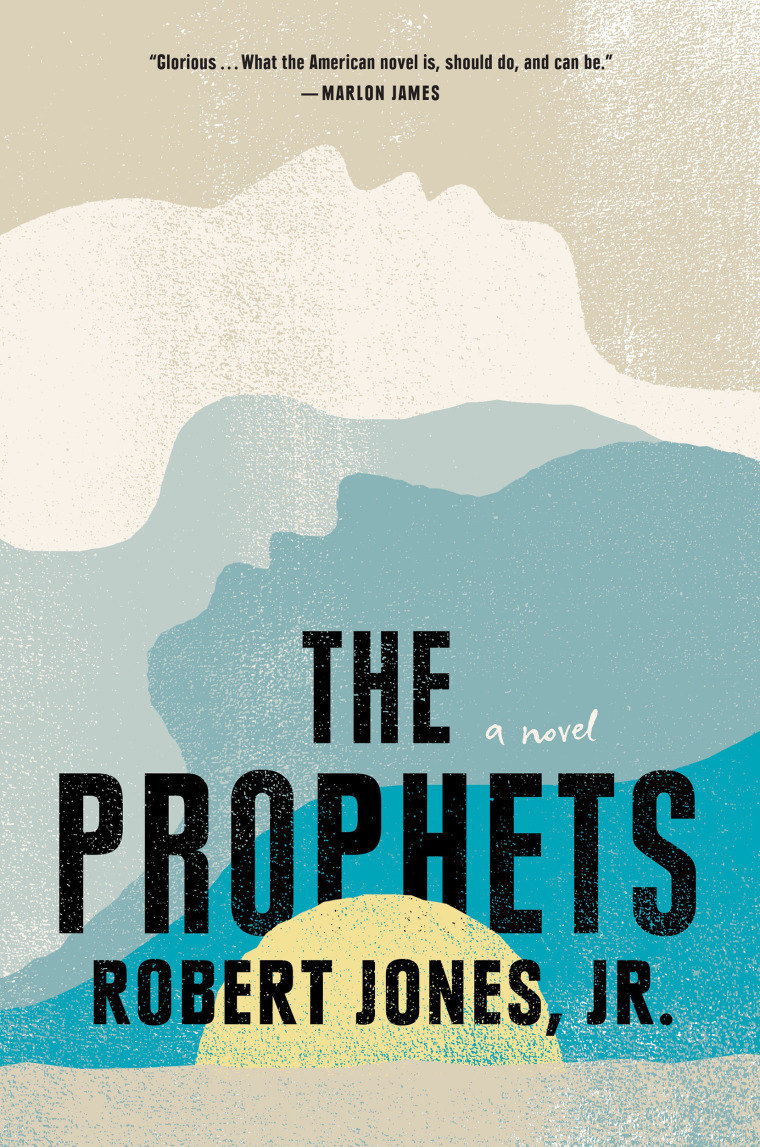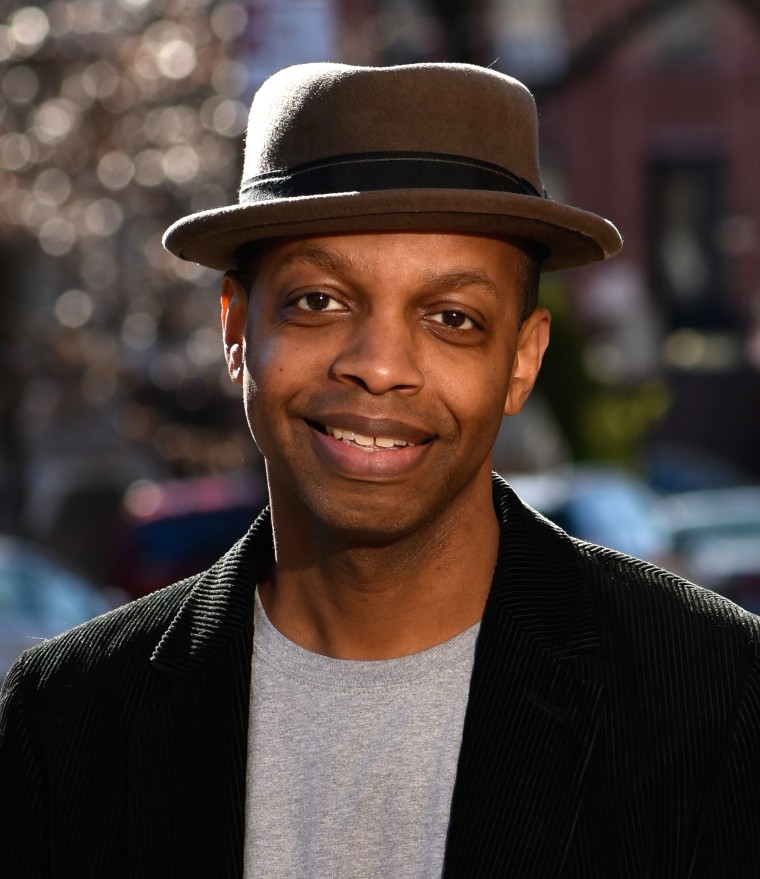‘The Prophets’ Imagines What’s Missing from Black Queer History
It’s the silent stories — those too dangerous to tell — that characterize much of queer history. That fear-induced secrecy has left large swaths of our archives absent of queer narratives, especially queer Black narratives.
The writer, Robert Jones Jr., has answered that silence with “The Prophets,” an expansive and lyrical novel celebrating the love story of Samuel and Isaiah, two enslaved Black teenagers in the antebellum South. Jones said he wrote the novel because he had to.

“I was honestly terrified to write this book,” he said, and quoted the novelist Toni Morrison, who famously stated, “If you find a book you really want to read but it hasn’t been written yet, then you must write it.”
Jones, 50, speaking from his home in Brooklyn, New York, said his mission was to write a story with characters he’d never seen but knew existed.
“How could it possibly be that Black queer people did not exist prior to the Harlem Renaissance?” he asked. “Maybe we did not have the word ‘queer’… maybe we didn’t have the language, but people don’t appear because of the language. They’re here, and then we find the language to describe their experiences later on.”
Samuel and Isaiah love each other, and that love represents a beacon of hope to others enslaved on the sprawling Mississippi plantation, also known as Empty. The others find that “simply bearing witness was a treasure,” even as they all endure together, living under the atrocities committed against them by the white family who enslaves them.
“It was essential for me in writing this novel about such a brutal part of history that I infuse it with as much love and hope as I possibly could, because so many novels that deal with this period focus on slavery as the character,” Jones said. “I wanted to make sure that these characters were the character, and that I provided them with a whole, dimensional, full-bodied humanity.”
That humanity does bring with it a betrayal, and it isn’t long until Amos, another enslaved man, begins to turn the others against Samuel and Isaiah, using his newfound enthusiasm for Christianity, as well as his own fears, to influence the others and chastise them for their acceptance of the two young men. The decision to shun Samuel and Isaiah quickly spreads through the community, jumping “from one face to the next, like lanterns being lit in quick succession.”
Christianity, and the way it has both harmed Black Americans and been used as a tool of white supremacy, is a throughline of the novel. Jones used Biblical names and concepts throughout the story as a way to subvert and challenge the teachings of Christianity.

Raised Nation of Islam on his mother’s side and Southern Baptist on his father’s, Jones said he gravitated toward Christianity as a child because he loved the music. However, he knew from a young age he was queer and said any homophobia he felt growing up was directly related to religion.
“When I was writing this book,” he said, “I wanted to make the case that the origin of anti-queerness, at least as it’s practiced in many Black communities, is Christianity in particular.”
It’s why part of the novel stretches back to the history of a pre-colonial African community with a female “king,” who oversees the joyful marriage of two men, Kosii and Elewa, whose love is described in parallel to Samuel and Isaiah’s. The wedding is a reminder that same-sex Black love is something that has existed — and has been celebrated — across centuries.
Recommended
OUT COMMUNITY VOICESHow a gay chorus is using American Sign Language to keep holiday spirit alive
OUT COMMUNITY VOICESWhy a single gay dad of 3 with a heartbreaking past is going viral
“When you look at the history, particularly the oral history of people who are continental Africans … you find that queerness was always a part of the landscape, always a part of the community,” Jones said. “They just never felt a need to give it a separate name or to single it out, because to them it was just love or sex or lust — and it was whether that was between two women, two men, or a man and a woman, or people who defied gender binaries.”
In the crowd at Kosii and Elewa’s wedding is a group of Portuguese intruders. They do not understand what they are seeing at first (“Are these two being initiated into manhood?”). The king, frustrated by their ignorance, tells the outsiders that this is a marriage. After an uncomfortable silence, one of the Portuguese men, Brother Gabriel, says, “I think your people would benefit from our religion.”
Related
Best Black queer books, according to Black LGBTQ leaders
It is not long after that the woman-led, queer-inclusive tribe is captured and forced onto a ship to America.
“When Christianity is introduced [on the plantation], it’s so seductive, because it gives people who are already being harmed, who are already oppressed, someone else to blame, over whom they have power, or could have power, and that’s incredibly seductive,” Jones said.
Power and its many forms infuse the novel, and Jones said he thought about power every time he wrote a sentence. That translates to a book that is layered with dynamics of privilege, perilousness, fear and courage.
“Why aren’t they afraid?” one character, Maggie, asks herself of the relationship between Samuel and Isaiah. She can’t imagine why they continue to love each other knowing their own fates aren’t up to themselves, and that they could be separated or killed at any moment.
In an interview, Jones slipped into character as Isaiah, and spoke in his voice, describing how Isaiah would speak to Samuel when asked about the danger of being together: “I want to love you as hard as I possibly can while I have you, and I’m not going to let what anyone else thinks about that deter me. And they’re going to have to drag me away from you, kicking and screaming. And even then, after we’re separated, I’ll know I loved you and I will carry that for the rest of my days.”
After reading “The Prophets,” you’ll carry that, too.